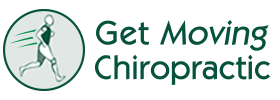Sensory Processing Disorder in Evergreen CO

What is Sensory Processing Disorder in Evergreen CO?
Sensory Processing Disorder (SPD) is a complex disorder of the brain that affects developing children as well as adults in Evergreen. Individuals with SPD misinterpret everyday sensory information received from the five senses: touch, vision, sound, smell, and taste. In addition, there are two senses that are rarely heard of; the vestibular and proprioceptive senses. The vestibular system has its function housed in the upper cervical spine (neck), the inner ear, and the base of the brain (cerebellum). The proprioceptive system sends messages to the brain from information received from the spinal joints and all other joints of the body.
Some people with SPD in Evergreen CO feel bombarded by sensory information and are often overwhelmed. While others seek out sensory experiences and often may act out inappropriately. SPD can lead to behavioral problems, difficulties with coordination or attention, learning disorders, low self-esteem, and a variety of other issues.
Contributing Factors of SPD
It is estimated that as many as 1/20 children may suffer from SPD! Contributing Factors of SPD Include:
- Environment
- Toxicity Exposure
- Birth Trauma
- Breech Birth
- Cesarean Section Birth
- Hereditary
- Retained Primitive Reflexes
- Overactivation of the sympathetic nervous system
- Spinal Subluxations
Children with SPD are often misunderstood and labeled as aggressive, clumsy, inattentive, or “difficult”. They may also be diagnosed as having ADD/ADHD, or another diagnosis’s under the umbrella of Autism Spectrum Disorder. SPD can also co-exist with these disorders as well as Obsessive-Compulsive Disorder, Anxiety Disorder, Traumatic Brain Injury, and others. The neurological disorganization resulting in SPD occurs in three different ways: 1) the brain does not receive messages due to a disconnection in the nerve cells 2) sensory messages are received inconsistently, or 3) sensory messages are received consistently but do not connect properly with other sensory messages. When the brain processes sensory messages poorly; inefficient motor, academic, or emotional output is the result.
Properly functioning vestibular and proprioceptive systems are two key components in developing a healthy sensory processing system. Because these two sensory systems have functions that are regulated by input from spinal areas, it is essential that children and adults with signs of SPD be evaluated by a family wellness chiropractor for vertebral subluxations (misalignments) of the spine that may be causing interference within the brain and sensory systems.
OFFICE HOURS
Monday
Closed
Tuesday
9:00pm - 5:30pm
Wednesday
Closed
Thursday
9:00am - 5:00pm
Friday
9:00am - 5:00pm
Saturday
Closed
Sunday
Closed
Get Moving Chiropractic
30772 Southview Drive #140
Evergreen, CO 80439



